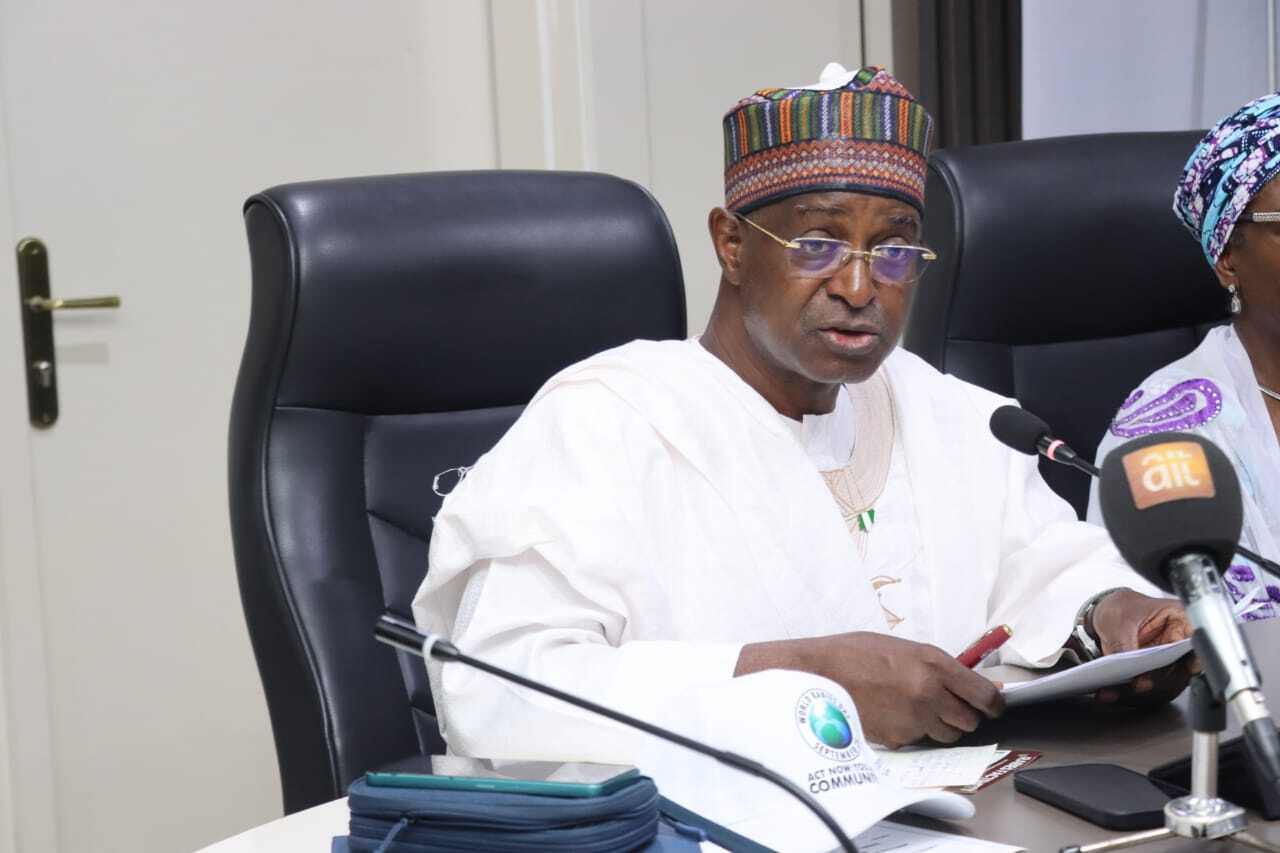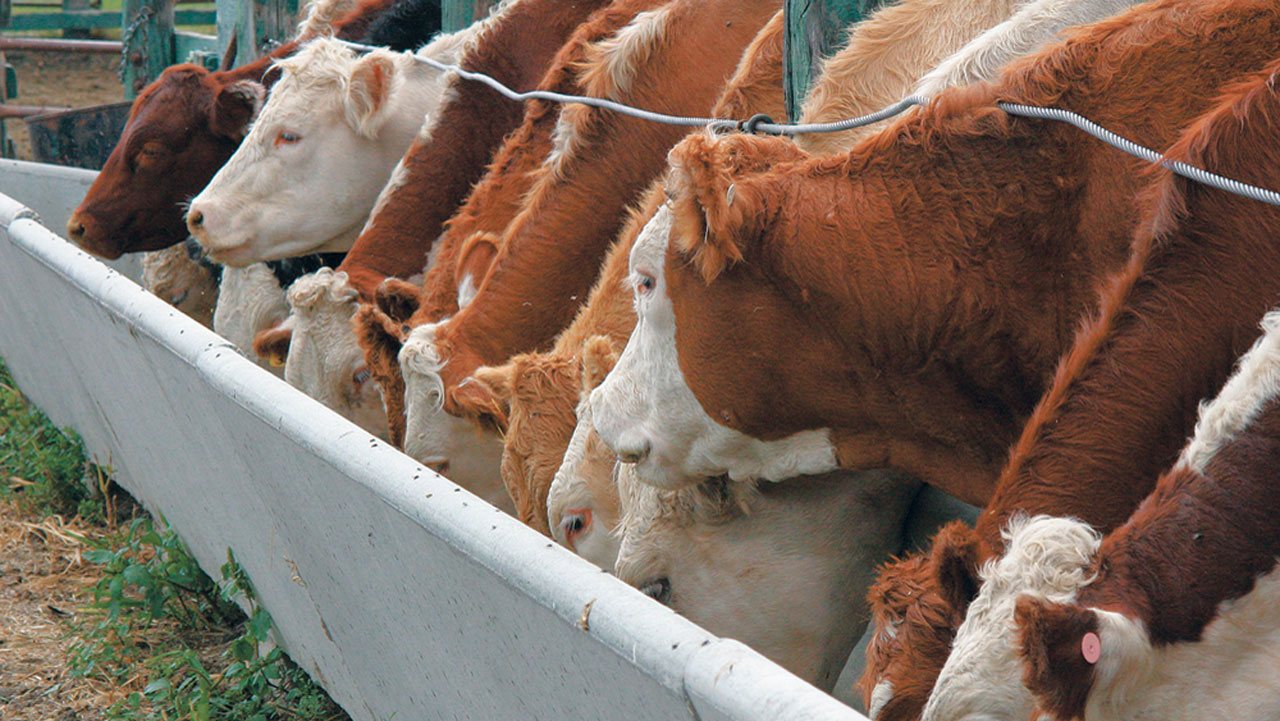
• ‘Each state should develop irrigation facilities for dry season farming’
• Those complaining are anti Nigerian poultry, rice farmers
Some Nigerians have commended the Federal Government for closing porous borders linking the Republic of Benin, Niger Republic and the country, saying such effort had sent signals to the two countries to steer clear of smuggling activities that have affected agricultural production and other industries.
At the same time, some Nigerians have kicked against the policy, saying ordinary Nigerians are left food-stranded while the big players in corruption and smuggling live in affluence.
This is as the prices of rice and other food items have increased drastically since the closure of the borders.Those who kicked against the policy argued that Nigeria is not ready for such a policy, knowing that the natural law of demand and supply would come to play, causing higher prices of food items such as rice, tomatoes and poultry products.
President of the Cocoa Association of Nigeria, Mr Sayina Riman, told The Guardian that the closure of the borders has no effect on cocoa production, but influx of chocolates could be prevented. Having done that, he argued, the Federal Government and cocoa-producing states should make deliberate efforts to encourage more cocoa production to create jobs and revenue for the government. Riman lamented that Nigeria is the lowest in cocoa production per hectare as a result of neglect of the crop which was a major revenue earner for the country in the pre-colonial era.
The association’s 10-year action plan, with intension to transform cocoa production, value addition and consumption, he said, would go a long way in boosting production per hectare and would create thousands of jobs along the value chains.Nigeria has the natural resources and favourable ecological factors to surpass Cote D’Ivoire and Ghana in cocoa production, he added, but the reverse is the case because of poor interest in agriculture.
President of the All Farmers Association of Nigeria (AFAN), Mr Kabir Ibrahim, expressed satisfaction that farmers now have a stable market for their produce and could plan, expand their farm operations and be sure of where to sell without cut-throat competition from smuggled unwholesome rice.He argued that a N20,000 bag of rice is still less than $50, which, by international standards, is not expensive for wholesome rice.
The ban agro-allied products and prevention of smuggling would stimulate investments in crop production, infrastructure and agro-allied machinery for value addition.A grain breeding specialist and Vice Chancellor of Al-Qalam University, Katsina, Professor Sheu Garki Ado, is of the opinion that “Bottom of Form
Top of Form
border closure is very important to protect the majority of Nigerians from the unpalatable consequences of dumping materials [that are] locally available in the country.“Those who complain of the closure are not interested in the farmers who toil to get ends meet daily. Nigeria ought to be self-sufficient in whatever it can produce locally.”He added that with porous borders, there would be no incentive to local producers, and job opportunities would not be available to the increasing number of jobless youths.
If the country allows indiscriminate imports, it can never be independent, he said, explaining that “the first independence should be on food, clothing and shelter. Nigeria has no business importing food. We ought to depend on ourselves for food at all cost.“We must not be a dumping ground for food and cloth producers. We have all that is needed to not only to be self-sufficient, but also to export surplus if proper incentives are provided. One of the incentives is to protect local producers.”
Executive Director, Agriculture and Rural Management Training Institute (RMTI), Ilorin in Kwara State, Dr Olufemi Oladunni, said it a positive step. Local production would be protected from extinction, he argued.“The reality is that local production cannot compete with the imported ones as the cost of production here is higher primarily because of infrastructural deficit,” he said.
Another academic at the Institute of Agricultural Research and Training (IAR&T), Ibadan, Professor Gabriel Oluwatosin, said whoever complains against border closure is an enemy of rice and poultry farmers.“What Nigeria has been doing in the past is to be paying rice farmers in other countries in hard currency to produce rice, but we have failed to encourage local production. The quality of such rice and chicken is so poor in nutrients.
“The present policy will make Nigeria self-sufficient in rice production. Currently, Nigeria is self-sufficient in poultry production. By raising local production, we shall henceforth be having wealthy farmers.” Professor Sanni Lateef, Deputy Vice Chancellor of the Federal University of Agriculture, Abeokuta (FUNAAB), said the action of the government is an indication that the future of agriculture and its transformations are fully assured.
Agricultural value chain would be more sustainable with consistent off-taking of agricultural commodities from farmers at fair prices, he added.He was optimistic that rural-urban youth migration could be curbed if agriculture is made attractive with stable and sustainable market and pricing systems. More small and medium-scale enterprises (SMEs) and start-ups would be aided with functional market structures and efficient internal control.He, however, admitted that there should be farm production and processing infrastructural upgrade to complement the control and avoid inflation of basic food items.
“This calls for concerted efforts to encourage private multiplication of more high-yielding and climate-friendly seeds, stems and breeds. Our infrastructures require upgrading and stakeholders need enough timely and affordable credit supports,” he advised.
Executive Secretary of Plantation Owners Forum of Nigeria (POFON), Mr Fatai Afolabi, said it is normal that the closure of the border between two countries would affect both countries. Ironically, he explained, the effect goes beyond the frontiers of Republic of Benin or Niger Republic for instance.
“The reason given by the Nigerian government for the closure of the borders was to check the debilitating effect of smuggling on the economy, which, on the surface, looks fine, but in reaching that decision, we should have profiled the various trans-border business activities.
“Because smuggling has become intractable, the government had to jettison all other legitimate trans-border economic activities. In the circumstance, farmers in our border towns, more especially those producing perishable crops, will be adversely affected. “Traders in household consumer goods, for instance at Oke-Arin market in Lagos, will be badly affected. Lagos is actually a border community in terms of trans-border trade in West Africa. The economy of Lagos will also be affected. In general, the common man is affected by the border closure and would feel more insecure food-wise.”
Smuggling, he added, is done by big people; the elite, saying, “It is also the big people; the elite that are aiding and abetting smugglers, and also protect them. Some of the smugglers have since been using the Nigerian ports, thus shoring up the revenue of the Nigeria Customs. Whereas, farmers, traders and food supply chain actors continue counting their losses and hoping that the borders will be opened shortly. “In my opinion, I think that the borders should be open, while we find a more pragmatic approach to solving the problem of smuggling through engagement and cooperation by governments of neighboring countries and their corporate and individual citizens.”
Basic food production information
Some Nigerians vehemently oppose the policy, saying it is a deliberate policy to inflict hardship on Nigerians by the government, knowing that Nigeria produces less that it requires in all the commodities except yam and cassava.
In wheat production, Nigeria produces about 100,000 metric tonnes while it consumes four million metric tonnes, with a deficit of 3.9 million tonnes yearly. In 2016, Nigeria produced 3.94 million metric tonnes of rice; 4.41 million tonnes in 2017; 4.66 million tonnes in 2018; 4.79 million tonnes and 4.90 million tonnes are expected in 2019 and 2020 respectively. The production shortfall for this year is predicted to be 3.12 million tonnes while in 2020, it will be 3.21 million tonnes. Data on maize production indicates that Nigeria needs approximately 16 million metric tonnes of maize yearly, but it produces about 12 million tonnes, with a shortfall of about four million tonnes. The country also requires eight million tonnes to close the gap and become maize secure.
The yearly demand for sugar is estimated to be 1.5 million, while the country produces less than 10 per cent of the demand.On citrus, the country needs 8 million hectares of farmland and a minimum of 24 million fully engaged workers to produce the yearly national deficit, estimated to be 415 million litres.
Dr Adeoye Afolayan, Director of Research and Development at the National Horticultural Research Institute (NIHORT), Ibadan, Oyo State, disclosed that the national production of citrus is estimated at 135 million litres of orange juice, while the demand is 550 million litres.
Managing Director, Aden River Estate Ltd, Edo State, President of Plantation Owners Forum of Nigeria (POFON), Mr Emmanuel Ibru, based on the data available to the forum, said crude palm oil consumption is about 1.4 million tonnes. So, there is a demand gap of between 400,000 and 500,000 metric tonnes.
Nigeria is also deficient in tomato production. The Executive Director of the National Horticultural Research Institute (NIHORT), Ibadan, Dr Abayomi Olaniyan, has also disclosed that Nigeria needs to produce additional 500,000 metric tonnes of fresh tomatoes to meet demand for local consumption, apart from industrial utilisation.“Tomato production of Nigeria is still short of what is demanded. Production figure for fresh tomatoes is about 1.8 million metric tonnes while the annual demand is 2.3 million tonnes,” he disclosed.
Based on the foregoing, Mr Pariola Rotimi, said the government should have stimulated more production of grains, especially rice, and should have stored such in preparation for border closure against smuggling. He argued that smuggling or not, Nigerians must eat, but since the home production is not enough, the policy is counter-productive and anti-masses.
Director of Agriculture at the Lower River Niger Basin Authority, Dr Olabisi Awoniyi, also said Nigeria is not really prepared for massive rice production locally although the policy is good.Irrigation facilities to revolutionise rice production are scanty and obsolete, while the seed system is not supportive of rice production.
Dr Francis Nwilenele, Regional Coordinator of Africa Rice Centre, supports Awoniyi, saying all state governments should invest in irrigation facilities if they serious about agriculture and food security. Though Nwilene commended the policy as a good step in the right direction, he lamented poor investments in research and development of improved varieties and technologies, irrigation facilities, and asked that activities of fraudsters parading themselves as farmers to corner incentives meant for real farmers should be checked.






